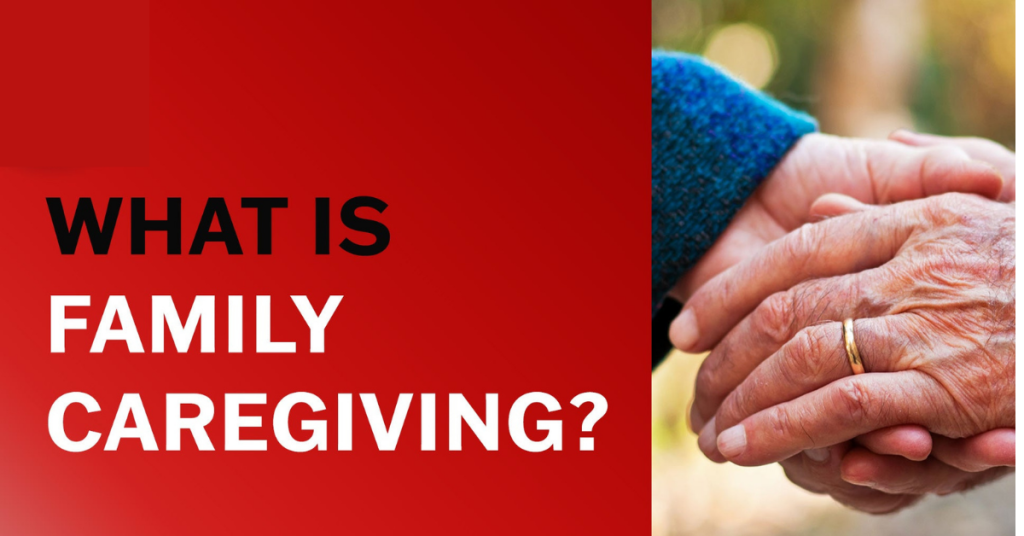What is family caregiving? Family caregiving can be a challenging and rewarding experience. It can also be overwhelming and confusing, especially if you are new to the role of caregiver. In this guide, we will discuss all aspects of family caregiving. We will cover topics such as how to take care of a loved one, how to manage your own health and well-being, and how to find resources and support. We hope that this guide will provide you with the information you need to make informed decisions about caring for your loved one.
Contents
- 1 What Is Caregiving?
- 2 What Is Family Caregiving?
- 3 Types of Family Caregiving
- 4 Different Elements of Family Caregiving
- 5 Importance of Family Caregiving
- 6 Impacts of Family Caregiving
- 7 Negative Impacts of Family Caregiving
- 8 How To Get Started as Family Caregiver?
- 9 Who Can Give Family Caregiving?
- 10 Conclusion
- 11 A Word From Therapy Mantra
What Is Caregiving?
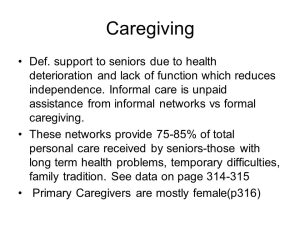 Caregiving is the provision of care to a family member or friend who is unable to take care of themselves due to illness, disability, or old age. It can be a challenging but rewarding experience. This also includes emotional and psychological support. Sometimes, caregiving can be a full-time job.
Caregiving is the provision of care to a family member or friend who is unable to take care of themselves due to illness, disability, or old age. It can be a challenging but rewarding experience. This also includes emotional and psychological support. Sometimes, caregiving can be a full-time job.
What Is Family Caregiving?
 Family caregiving is the provision of care to a family member or friend who is unable to take care of themselves due to illness, disability, or old age. It can be a challenging but rewarding experience. This also includes emotional and psychological support. Sometimes, caregiving can be a full-time job.
Family caregiving is the provision of care to a family member or friend who is unable to take care of themselves due to illness, disability, or old age. It can be a challenging but rewarding experience. This also includes emotional and psychological support. Sometimes, caregiving can be a full-time job.
Family caregiving also includes providing care to loved ones who live far away. This can be done by traveling long distances, or through technology such as video chat and social media. Sometimes, it’s just a matter of being there for the person emotionally.
Types of Family Caregiving
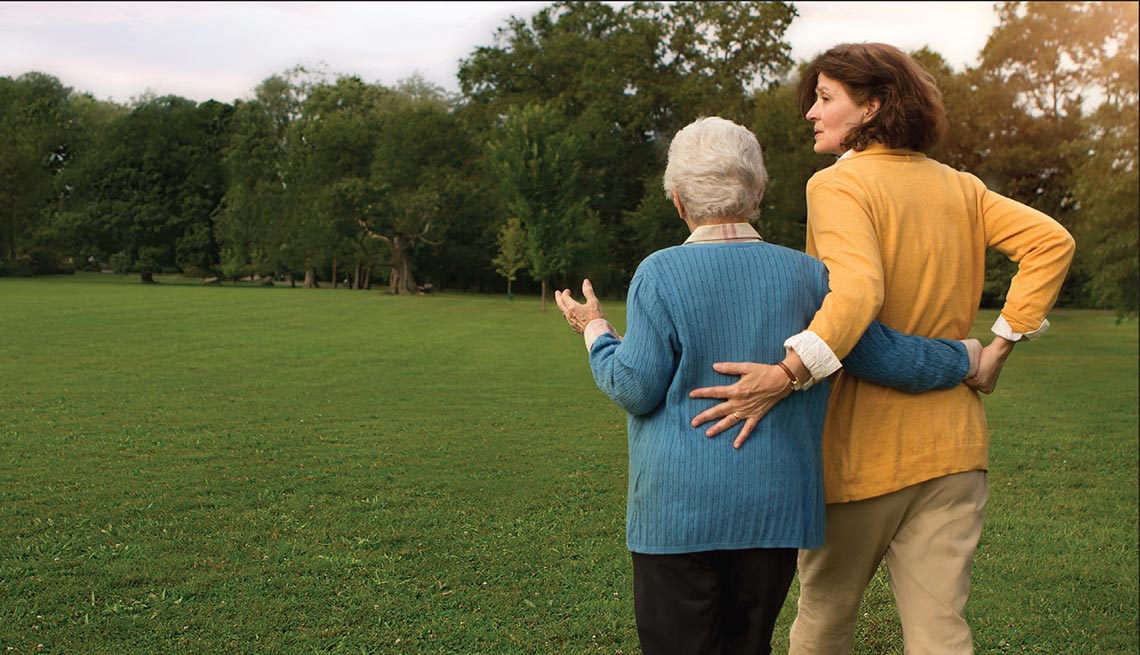
There are many types of family caregiving. The most common are:
Hands-On-Hands
This type of caregiving usually involves personal care, such as bathing, dressing, and grooming. The caregiver is physically present and provides assistance. Sometimes this type of care is necessary for a short period of time, and sometimes it’s long-term.
Distance Caregiving
This type of caregiving usually involves providing care to someone who lives far away. The caregiver may not be able to provide hands-on assistance, but they can still offer emotional support and guidance. This type of caregiving can be done through technology or by traveling long distances.
Remote-Hands
This type of caregiving usually involves providing support from a distance. The caregiver may not be able to provide hands-on assistance, but they can offer emotional support and help with tasks like scheduling appointments or handling paperwork.
Medical-Hands
This type of caregiving is when the caregiver provides direct medical care to their loved one. This often includes wound care, injections, and other treatments.
Non-Medical Care
This type of caregiving covers a wide range of activities that don’t involve medical treatment. This can include helping with meals, transportation, financial tasks, and more. Sometimes it’s just a matter of being there for the person emotionally.
Different Elements of Family Caregiving
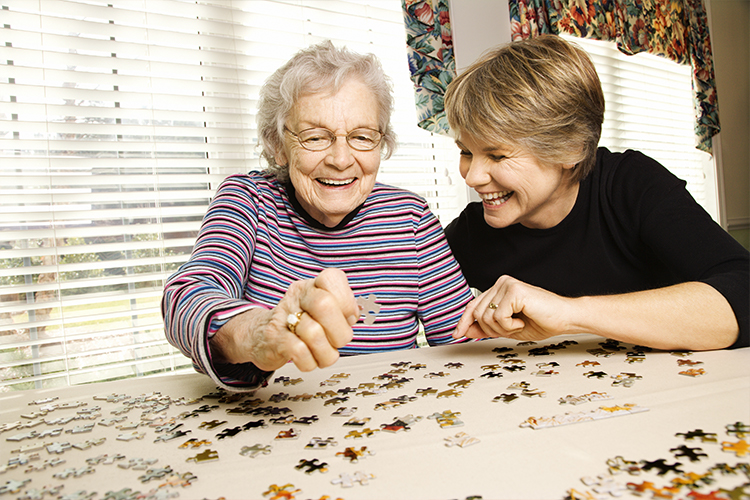
There are different elements of family caregiving that caregivers should be aware of. The most important are:
Physical Requirements
The physical requirements of caregiving can be challenging. Caregivers often have to lift their loved ones, help them walk, and bathe them. It’s important to know your limitations and ask for help when you need it. Sometimes, it’s necessary to get help from a professional caregiver.
Emotional Requirements
The emotional requirements of caregiving can be just as challenging as the physical requirements. Caregivers often have to deal with stress, sadness, and anger. It’s important to take time for yourself and find ways to cope with these emotions. Seek out support from family and friends, or join a support group.
Financial Requirements
Caregiving can be expensive. The costs of supplies, medication, travel, and more can add up quickly. It’s important to create a budget and plan for expenses ahead of time. You may also want to consider seeking financial assistance from government programs or private organizations.
Legal Requirements
This is a less common element of caregiving, but it’s still important to be aware of. Caregivers need to make sure they understand the legal requirements of providing care. This includes things like power of attorney and guardianship.
Importance of Family Caregiving
 The importance of family caregiving can’t be overstated. Caregivers provide important support to their loved ones and help them live a better quality of life. Family caregiving is a challenging but rewarding experience that can make a difference in the lives of everyone involved.
The importance of family caregiving can’t be overstated. Caregivers provide important support to their loved ones and help them live a better quality of life. Family caregiving is a challenging but rewarding experience that can make a difference in the lives of everyone involved.
Sometimes family caregivers need a break. There are respite services available that can provide short-term relief. This gives the caregiver a chance to rest and recharge, while someone else provides care for their loved one.
The importance of family caregiving can’t be overstated. Caregivers provide important support to their loved ones and help them live a better quality of life. Family caregiving is a challenging but rewarding experience that can make a difference in the lives of everyone involved.
Impacts of Family Caregiving

There can be many impacts of family caregiving, both positive and negative.
Positive Impacts of Family Caregiving
Some of the positive impacts of family caregiving include:
Improves Quality of Life
This type of caregiving can improve the quality of life for both the caregiver and the person receiving care. It allows them to spend time together and provides important support.
Reduces Stress Levels
Caregiving can be stressful, but it also has some stress-relieving benefits. It gives caregivers a chance to focus on someone else and helps them feel connected to their loved ones.
Promotes Independence
Family caregiving can promote independence by helping people stay in their homes longer. This is often preferable for both the caregiver and the person receiving care. This type of caregiving can also improve the quality of life for both parties.
Negative Impacts of Family Caregiving
There can be some negative impacts of family caregiving as well, including:
Burnout
Caregivers can experience burnout if they don’t take time for themselves. This can lead to physical and emotional health problems. Sometimes caregivers need a break, so they can rest and recharge.
Isolation
Caregivers can often feel isolated from their friends and family. They may not have time to socialize or they may not want to talk about their caregiving experiences. This can lead to feelings of loneliness and isolation.
Financial Stress
Providing care can be expensive, especially if the caregiver has to quit their job or reduce their hours. This can lead to financial stress for both the caregiver and the person receiving care. Sometimes there may be some money problems due ti this too.
Conflict With Other Family Members
Family caregivers can sometimes experience conflict with other family members who are providing care. This is often due to disagreements about how much care should be provided or how it should be delivered.
How To Get Started as Family Caregiver?
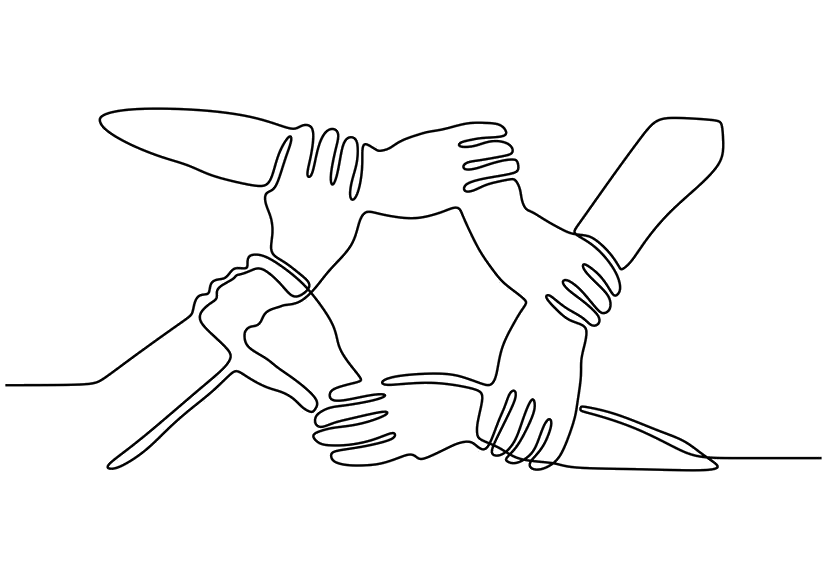
If you’re thinking about becoming a family caregiver, there are some things you should know first. Here are some steps to get started:
Step One: Talk to Your Loved One
The first step is to talk to your loved ones about their needs. Ask them what type of care they need and how much assistance they require. This will help you determine if you’re able to provide the care they need. This conversation can be difficult, but it’s important to have open communication.
Step Two: Assess Your Abilities
The next step is to assess your abilities. Caregiving can be physically and emotionally challenging, so you need to make sure you’re able to handle the workload. You also need to make sure you have the time available to provide care. If you don’t think you can do it on your own, consider getting help from a professional caregiver or family member.
Step Three: Create Plan
Once you know what type of care is needed and what your limitations are, it’s time to create a plan. This plan should include things like how often you will provide care, who will help you, and what your budget will be. It’s important to start planning early, so you have enough time to prepare.
Step Four: Get Help
Caregiving can be challenging, so it’s important to get help from family and friends. They can provide emotional support and assistance with tasks like transportation or grocery shopping. You can also join a support group or online community for caregivers. This can be a great resource for information and advice.
Who Can Give Family Caregiving?
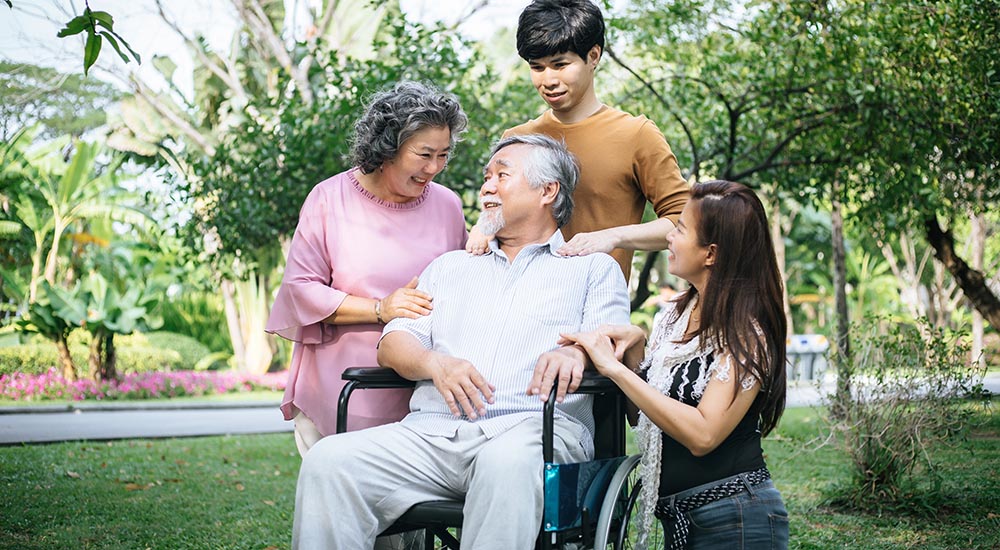
There are a lot of different people who can provide family caregiving, including:
Adult Children
Adult children are often the first choice for caregivers, as they’re typically in a position to help. They may live close by and be able to provide regular assistance. These caregivers can provide a wide range of care, from basic tasks like bathing and dressing to more complex medical care.
Parents
This type of caregiving can also come from parents, who may be retired and living close by. They can provide a lot of help with basic tasks, but they may not be able to provide complex medical care.
Spouses
Spouses are another common choice for caregivers. They often have a close relationship with the person receiving care and they’re typically able to provide care on a regular basis. Like adult children, spouses can provide a range of care depending on their abilities.
Other Family Members
Other family members, such as siblings or parents, can also provide family caregiving. They may not be able to provide care on a regular basis, but they can step in when needed. This type of caregiving is often less formal than other types of caregiver relationships.
Professional Caregivers
If you don’t feel comfortable or able to provide care yourself, you can hire a professional caregiver. This is a good option for people who need occasional help or those who require more complex medical care. Professional caregivers can provide assistance with tasks like bathing, dressing, and grooming.
Conclusion
Family caregiving is a challenging but rewarding experience. If you’re thinking about becoming a caregiver, make sure you assess your abilities and create a plan. Get help from family and friends, and consider hiring a professional caregiver if needed.
In conclusion, family caregiving can be a challenging but rewarding experience. If you’re thinking about becoming a caregiver, make sure you assess your abilities and create a plan. Get help from family and friends, and consider hiring a professional caregiver if needed. You can also contact us for more information related to this. You can also contact us for more help.
A Word From Therapy Mantra
Your mental health — Your psychological, emotional, and social well-being — has an impact on every aspect of your life. Positive mental health essentially allows you to effectively deal with life’s everyday challenges.
At TherapyMantra, we have a team of therapists who provide affordable online therapy to assist you with issues such as depression, anxiety, stress, workplace Issues, addiction, relationship, OCD, LGBTQ, and PTSD. You can book a free therapy or download our free Android or iOS app.
